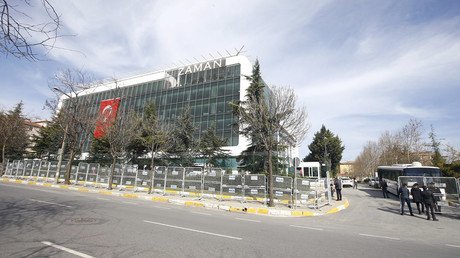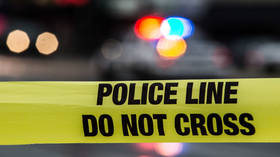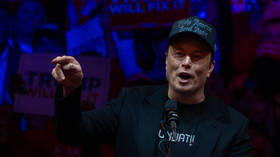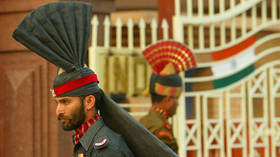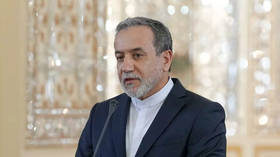‘US stance on Turkey’s media crackdown – quid pro quo’
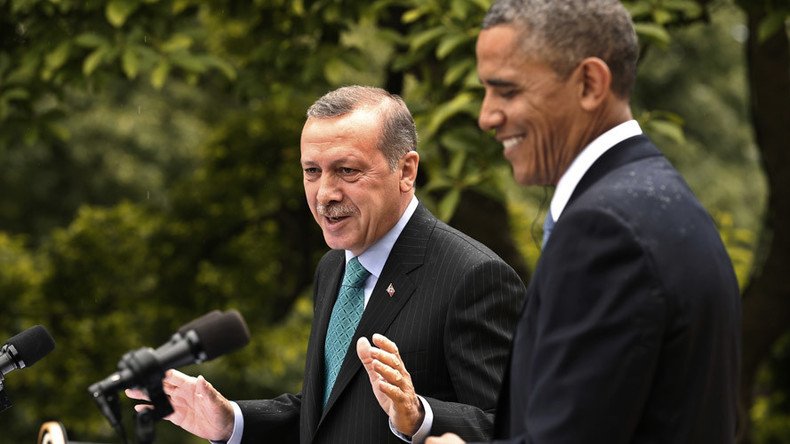
Washington will not criticize Turkey's crackdown on the press because it is dependent on the country's airbases to carry out strikes, Chris Hedges, author, war correspondent and former bureau chief for the New York Times has told RT.
RT: The State Department seems to be pretty quick to condemn other countries in terms of human rights violations, but reluctant when it comes to the same issue in Turkey. What's the reason behind that?
Chris Hedges: They need Turkey as a logistical base in order to carry out strikes against the so-called Islamic State. So I mean what we have seen in terms of attacks on the press and even attacks on the social media – it is almost unprecedented. It is coming close to almost a complete shutdown of independent journalism within the Turkish state.
RT: The situation regarding freedom of the press in Turkey, from your time looking at it, is it the worst it has ever been?
CH: Yeah, I was the Middle East bureau chief for the New York Times, so I was in the Middle East for seven years, and I covered Turkey…The Turkish relationship with the press starting with the independent state of Turkey and the breakup of the Ottoman Empire was always problematic. Atatürk, the first sort of father of modern Turkey, was always very harsh. After World War II they were severe. So I mean it has come in kind of patterns. But I would say it is the worst it has been in decades, yes.
RT: Numerous human rights groups have slammed Turkish authorities for gagging the press in the country. Can the actions of such organizations make any impact on the issue?
CH: So far it has virtually had no impact. I don't think that the Turkish government is particularly responsive to the complaints of US human rights groups. Remember they have resurrected the whole war with the Kurds now and the PKK. So the Turkish investment in the radical groups in Syria many people read as an effort by the Erdogan government to essentially recreate in some form the old Ottoman Empire, certainly to expand Turkey's territorial reach and there really does not seem to be any restraint, any meaningful restraint on the part of the outside powers vis-à-vis Turkey. And I think that is largely because the US desperately needs Turkey as a staging area to carry out its attacks in Iraq and Syria. And therefore in essence it is a kind of quid pro quo where they need Turkey and therefore are uncomfortable in terms of pressuring Turkey in any meaningful way.
RT: Is there any way to ensure freedom of the press is respected in Turkey?
CH: We have seen in recent days and weeks that it has only gotten worse. Journalists have been charged not with violating censorship laws but with terrorism itself. Newspapers have been taken over. Basic social media, like Facebook have been shut down. The Russian news agency was shut down. The screws have only been tightened and this isn't a particularly new phenomenon. The assault by this government on the Turkish press has been ongoing for some time, but they really seem at the point of shutting out any kind of independent press reporting or monitoring, not only within Turkey but within the wider region. And that is very dangerous because out of the counties like Iraq whose infrastructure was destroyed and also certainly out of much of Syria, we have very few news organizations within the region that are able to report on what is happening. The Turkish press, certainly when I covered the Middle East, was good and vigorous and it is just tragic to see what has happened to it.
The statements, views and opinions expressed in this column are solely those of the author and do not necessarily represent those of RT.
